June 25, 2025 | 00:06 GMT +7
June 25, 2025 | 00:06 GMT +7
Hotline: 0913.378.918
June 25, 2025 | 00:06 GMT +7
Hotline: 0913.378.918
According to a recent assessment by the Directorate of Fisheries with the help of the World Wild Fund (WWF), plastic waste in aquaculture is mostly generated during infrastructure development, including canvas to cover ponds, cages, and nets.
The quantity of plastic waste generated by lobster culture is estimated to be roughly 2,875 tons per year, with 138.75 tons (or 4.83 percent) being discharged into the sea. Each year, it is projected that cage fish farming generates 2,588 tons of plastic garbage, of which about 134.86 tons are dumped into the sea (accounting for 5.21 percent ).
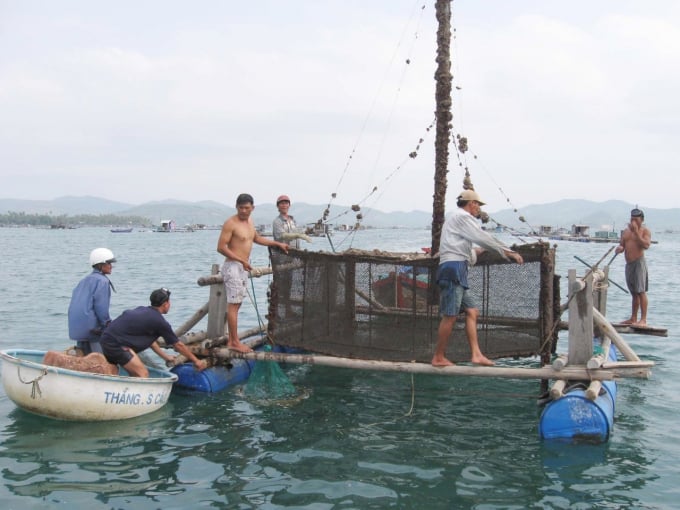
Aquaculture activities generate a lot of waste. Photo: AN.
Phuc Yen's aquaculture operations are diverse. The survey was conducted in Song Cau and Tuy An communes about agricultural items such as white-legged shrimp farming in Dong Hoa and Tuy An, and lobster farming in Song Cau and Tuy An.
In terms of plastic garbage created in a single year, one home generates more than 12 tons. However, this is a large-scale white leg shrimp farming family covering an area of more than 4 hectares. Due to the fact that all pond sections are coated with plastic canvas and covered with plastic nets, a significant quantity of plastic trash is created during the pond's development.
In lobster farming families, the average quantity of plastic created per cage per year is 9.89 kg. In Phu Yen, intense white leg shrimp farming generates an average of 2,896 kg of plastic garbage per hectare of ponds each year (of which canvas pad for shrimp ponds accounts for about 53 percent.)
The quantity of plastic waste created during the building of the initial infrastructure accounts for a significant component of the total, accounting for more than 90 percent of the total amount of plastic waste generated for the investigated farming kinds in Phu Yen.
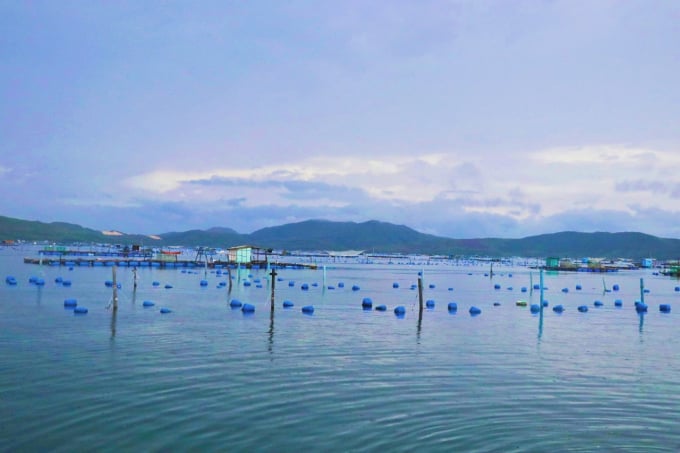
Aquaculture area in Xuan Dai bay, Song Cau town, Phu Yen province. Photo: PC.
For the Phu Yen Department of Agriculture and Rural Development, field research indicates that there are several pilot models of plastic waste collectors from seafood farming and exploitation, with the primary plastic wastes being bags, plastic bags, plastic bottles, food containers, chemicals, materials for raft cage construction, and old fishing gear.
However, fishermen bring just a percentage of garbage to shore to be disposed of alongside household waste, while the majority discharge straight into the natural marine environment. Meanwhile, fishermen should be aware that the majority of plastic garbage is non-biodegradable and floats in the sea, lagoon, and bay, endangering not only the marine ecology, environment, and terrain... but also aquatic and marine life.
Additionally, the majority of plastic trash generated by aquaculture and fishing operations cannot be recycled or must be processed expensively due to salinization. Meanwhile, management, collection, and treatment of plastic garbage continue to be insufficient in coastal communities across Phu Yen province.
Mr. Nguyen Van Hong, an aquaculture farmer in Song Cau town's Xuan Yen ward, said that it is critical to maintaining the maritime environment by avoiding the disposal of rubbish, particularly plastic waste, into the lagoon and bay. Littering has a detrimental impact on the marine ecology, the environment, and kills livestock as a result of pollution. To maintain the environment, however, each farmer must be conscientious and work together to collect plastic bags, fish corpses, and leftovers and not discard them in the lagoon.
According to Mr. Nguyen Tri Phuong, Deputy Director of the Phu Yen Department of Agriculture and Rural Development, in the coming years, departments, agencies, and localities must strengthen communication and education to increase fishermen's awareness of environmental protection; at the same time, departments, agencies, and localities must strengthen inspection and handling of intentional dumping of plastic waste that causes environmental pollution in order to reduce waste in aquaculture and fishing activities.
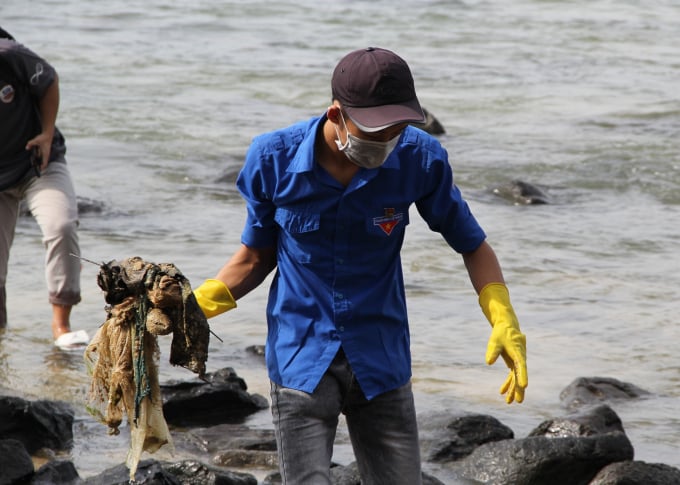
To protect the marine environment, garbage should be collected and treated in accordance with regulations. Photo: KS.
In 2019, the Phu Yen Department of Natural Resources and Environment constructed a model of garbage collection from aquaculture cages in Song Cau town's Xuan Yen ward, Xuan Dai bay. Additionally, a trial concept for collecting plastic garbage from the sea will be implemented at Dan Phuoc fishing port, using volunteer fishing boats.
According to Mr. Phuong, the Phu Yen Agriculture and Rural Development sector would merge waste management and collection methods from aquaculture and fishing operations with the development and assignment of management authority for community groups in the future years.
Simultaneously, by integrating with the new rural building program, which will mobilize money and human resources for implementation, we can gradually say no to plastic garbage and progress toward saying no to waste entering the natural environment as a result of agricultural operations.
Additionally, the agricultural sector will collaborate with departments, agencies, and local governments, as well as mass organizations, to educate and mobilize people about aquaculture and environmental protection, as well as to collect and classify plastic waste generated by aquaculture and fishing, and to treat it in accordance with regulations.
Key stakeholders collaborate on environmental protection initiatives and effectively carry out the responsibilities specified in the Provincial People's Committee's plan on plastic trash and ocean plastic waste management until 2030.
According to our study, Phu Yen province has set action plans to manage plastic waste and ocean plastic waste by 2030 in order to combat the adverse consequences of plastic waste. As a result, it requires ministries, agencies, and local governments to increase public awareness and education about the dangers of plastic waste discharge into the environment and the need of using ecologically friendly packaging and products. Additionally, voluntarily collect garbage from aquaculture and fishing operations and transport it to the appropriate collection location for treatment, burial...
Translated by Linh Linh
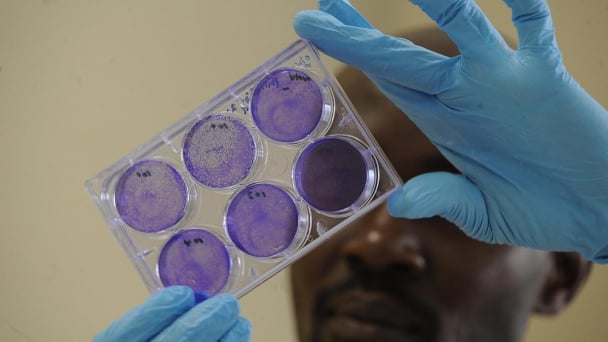
(VAN) The Food and Agriculture Organization’s Strategic Framework and its Science and Innovation Strategy make a simple case: solving systemic problems requires systemic solutions.
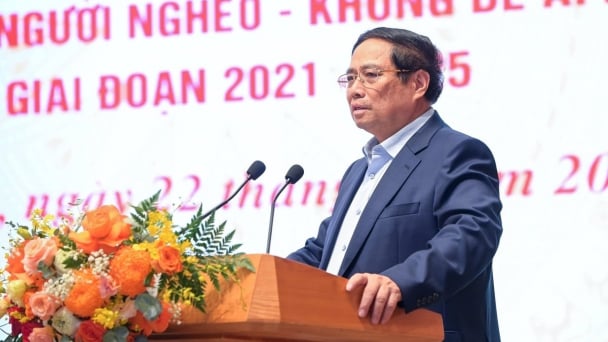
(VAN) Vietnam's national goal programs have effectively mobilized the combined strength of agriculture, farmers, and rural areas, thereby enhancing the material and spiritual well-being of the Vietnamese populace.

(VAN) The waste of resources from agricultural by-products and the situation of counterfeit and poor quality goods in production causing losses of thousands of billions were pointed out by the National Assembly deputy.

(VAN) After 5 years of implementation, the CAI initiative has helped coffee growers change their farming practices, moving toward responsible agriculture that meets global export standards.

(VAN) The primary prerequisite for the comprehensive and robust integration of Vietnam's livestock sector into the global value chain is the establishment of a disease control system.

(VAN) The results of national programs are essential for establishing a contemporary livestock sector that is well-equipped to meet the demands of both domestic and international markets, with robust biosafety standards.

(VAN) The UNESCO Global Geopark revalidation of Non nuoc Cao Bang and the transition to a two-tier administrative model are presently undergoing a pivotal moment in Cao Bang, the northernmost province of Vietnam.